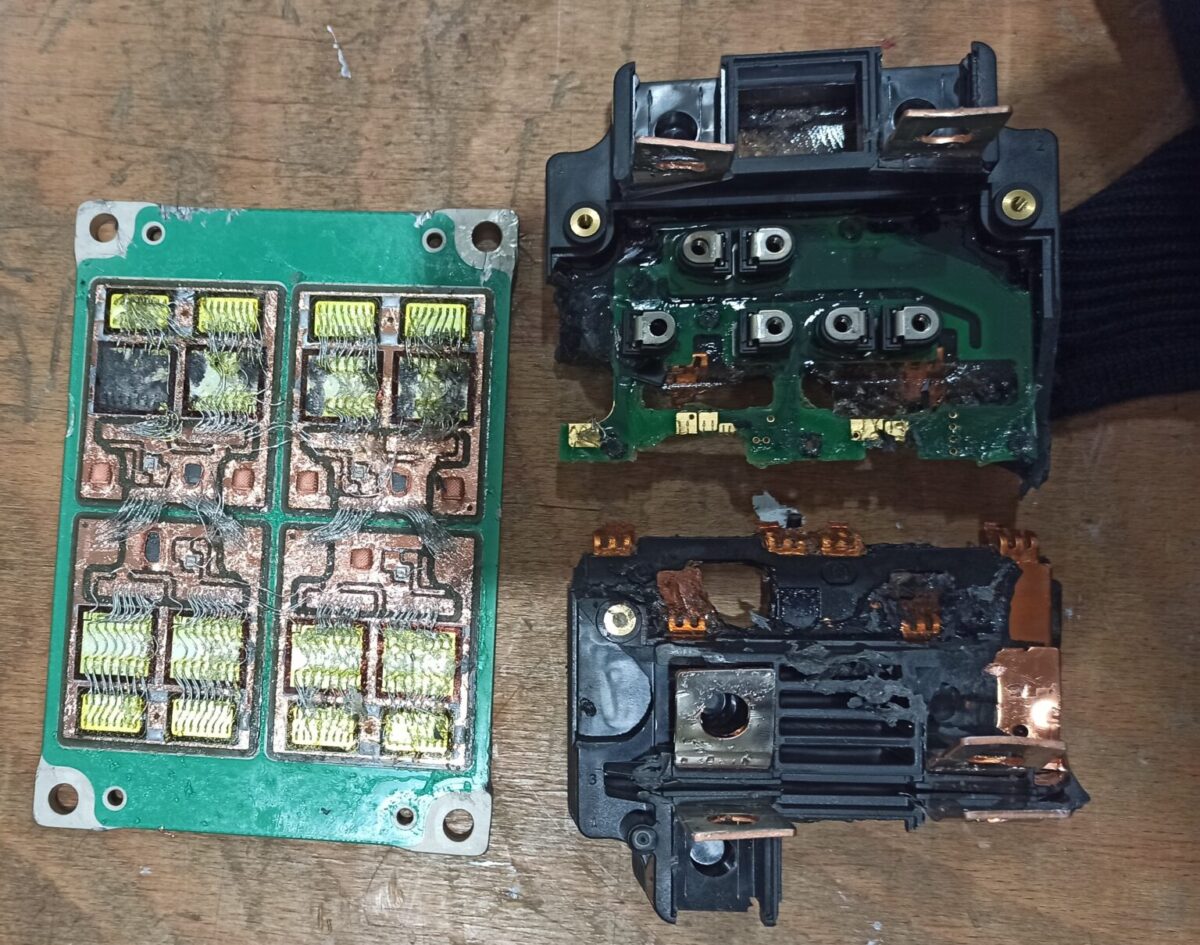A 95 MW PV plant in South Africa, owned by an independent power producer active in several markets, has faced recurring inverter failures, according to Kiwa PI Berlin. Between 2022 and 2023, the plant logged more than 130 failures linked to insulated gate bipolar transistors (IGBTs) within field-replaceable units (FRUs).
The inverter failures affected both energy production and operational costs due to the need for frequent repairs and replacements. Kiwa PI Berlin was brought in to perform a root cause analysis to identify the underlying issues causing the inverter failures.
Root cause analysis is a diagnostic approach used to trace problems back to their origin, allowing for targeted solutions and actionable recommendations to prevent recurrence. Inverter issues can arise from multiple sources, including defective circuit boards, communication errors, improper switching algorithms, inadequate maximum power point tracking (MPPT) control, and component or maintenance shortcomings.
Inverters rely on insulated gate bipolar transistors (IGBTs) to convert direct current (DC) from solar modules to alternating current (AC) for the grid. These components are crucial, as their malfunction can lead to catastrophic failures, such as explosions or overheating, which can severely disrupt plant operations.
In response to recurring inverter failures, Kiwa PI Berlin implemented a two-step approach that involved a thorough technical and on-site analysis. For the technical phase, it reviewed all technical documents provided by the client, including data from the SCADA system, previous incident reports, and user manuals. Using advanced data analytics and predictive modeling, the team analyzed large volumes of operational and maintenance data to detect patterns and anomalies contributing to the failures.
During the on-site analysis, Kiwa PI Berlin’s engineering team visited the PV plants to physically inspect the inverters, assess the environmental conditions, and conduct interviews with operators. They gathered detailed data on environmental conditions, inverter infrastructure, and the response actions taken during incidents. To identify switching anomalies, they measured IGBT operations, recorded detailed observations, and documented conditions with photographs for further review.
The root cause analysis identified multiple factors behind the IGBT failures, starting with defects in one type of field replacement unit (FRU). Although the FRU could operate within the safe range for several months, adverse environmental conditions eventually caused the IGBTs to exceed safe parameters, leading to serious failures.
Harsh weather, compounded by inadequate maintenance like faulty fans and loose bolts, further aggravated the inverter issues. Dust and dirt accumulation on components also led to frequent failures. Manufacturing defects in some components also weakened their performance and durability, leading to repeated IGBT malfunctions.
Based on these findings, Kiwa PI Berlin provided several targeted recommendations to improve PV plant operations and prevent future failures. It proposed a stricter maintenance schedule to ensure components operated within optimal conditions, emphasizing regular fan checks, cleaning of sensitive parts, continuous inverter monitoring, and periodic reviews of cooling systems to address issues before they escalate.
Kiwa PI Berlin worked in collaboration with the manufacturer to enhance the FRU’s robustness by eliminating previously detected defects. It also recommended integrating advanced SCADA systems for real-time inverter monitoring, with additional sensors and monitoring software to track operating conditions closely and identify potential faults early.
Garikoitz Sarriegi, senior project manager at Kiwa PI Berlin, told pv magazine that “the plants have achieved a significant reduction in inverter failures and a noticeable improvement in operability and performance.”
This content is protected by copyright and may not be reused. If you want to cooperate with us and would like to reuse some of our content, please contact: editors@pv-magazine.com.



By submitting this form you agree to pv magazine using your data for the purposes of publishing your comment.
Your personal data will only be disclosed or otherwise transmitted to third parties for the purposes of spam filtering or if this is necessary for technical maintenance of the website. Any other transfer to third parties will not take place unless this is justified on the basis of applicable data protection regulations or if pv magazine is legally obliged to do so.
You may revoke this consent at any time with effect for the future, in which case your personal data will be deleted immediately. Otherwise, your data will be deleted if pv magazine has processed your request or the purpose of data storage is fulfilled.
Further information on data privacy can be found in our Data Protection Policy.